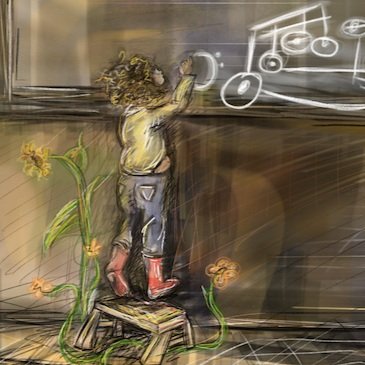Note From the Composer:
This piece was written for the Treske Quartet, and was first premired in 2023 in Leicester, VT as part of the New Music On the Point festival.
This piece was inspired by the human voice. For this, I drew on all the non-verbal, "non-musical" sounds that the human throat can produce, such as grunts, groans, mews, sighs, and sobs. As a vocalist, I've always been fascinated by the powerful sympathetic reaction elicted by a hitch in the breath or a wobbly tone - the small sounds that indicate someone is about to cry. I've always noticed that there is something about tears and crying that causes other people to react with urgency and concern. Many have expressed that it is uncomfortable, perhaps even unbearable, for them to witness such a human display of emotion, and in that way, crying is perhaps one of the most powerfully evocative sounds the voice can produce, even more than the most tender singing or the strongest speech. The music of crying provokes a reaction not just in our minds but in our bodies, drawing on our empathetic nervous system and exploiting the primordial human urge to connect.
For this piece, I created and listened to real-life field recordings of crying to study the timing, the ebbs and flows. I also listened to recordings in order to find cognate sounds that could be played on the instruments. Some sounds, like grunts and breaths, could be convincingly achieved on a single instrument, while other more complex sounds, like sniffles and gasps, require a composite of two instruments or more. By translating these sounds to the strings, I asked myself if they could evoke a similar reaction in the listener. Can the sounds themselves, disembodied as they are, evoke the same small panic, the same sympathetic concern? Or can they be received simply as musical - unemotional and incommunicative? Does the music still induce a reaction in the body as well as the mind? Regardless of the answer, I very much enjoyed turning this string ensemble into my little chorus of throats, and finding unexpected physicality in the instruments. I owe so much to Treske Quartet for taking on this project with understanding and gusto! I wrote this piece during a time in my life when I was feeling blocked from my own creative voice, but creating "throat." and working with Treske brought my voice back to me.
